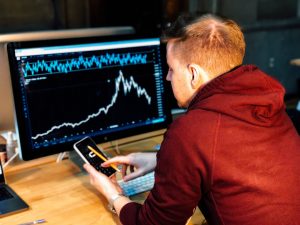The forex market, also known as the foreign exchange market, is the largest financial market in the world. It is a decentralized market where global currencies are traded 24 hours a day, five days a week. The participants in the forex market are diverse, and they include individuals, corporations, banks, and governments. This article explores who the participants of the forex market are and their roles in the market.
Individual Traders
Individual traders are the most common participants in the forex market. They include retail traders, speculators, and day traders. Retail traders are individual traders who trade their own funds through forex brokers. They usually have small trading accounts and trade for personal profit. Speculators are traders who aim to profit from short-term price movements. They use technical and fundamental analysis to identify trading opportunities. Day traders are traders who open and close trades within a day. They aim to profit from small price movements and take advantage of leverage provided by brokers.
Institutional Traders
Institutional traders are market participants who trade on behalf of corporations, banks, hedge funds, and other financial institutions. They trade large volumes of currencies and have a significant impact on the forex market. They use sophisticated trading strategies and have access to advanced trading tools and platforms. Institutional traders include:
– Banks: Banks are the largest participants in the forex market. They trade currencies on behalf of their clients, including corporations, governments, and other financial institutions. Banks also trade currencies for their own accounts to generate profits and manage risks.
– Hedge Funds: Hedge funds are investment funds that trade on behalf of high net worth investors and institutions. They use a variety of trading strategies, including arbitrage, macroeconomic analysis, and technical analysis, to generate profits.
– Asset Managers: Asset managers are financial professionals who manage portfolios of assets on behalf of their clients. They trade currencies to hedge risks and generate profits for their clients.
– Central Banks: Central banks are government institutions responsible for monetary policy. They trade currencies to manage their country’s exchange rate and to maintain price stability. They also intervene in the forex market to prevent excessive volatility.
Brokers
Brokers are intermediaries between traders and the forex market. They offer trading platforms, tools, and services to individual and institutional traders. Brokers earn revenue by charging commissions, spreads, and other fees. There are two types of forex brokers:
– Dealing Desk Brokers: Dealing desk brokers are market makers who act as the counterparty to their clients’ trades. They make money by taking the opposite side of their clients’ trades and by charging spreads and commissions.
– Non-Dealing Desk Brokers: Non-dealing desk brokers are brokers who do not take the opposite side of their clients’ trades. They offer direct market access to the forex market and earn revenue by charging commissions and spreads.
Market Makers
Market makers are financial institutions that provide liquidity to the forex market. They buy and sell currencies to maintain an orderly market and to ensure that there are always buyers and sellers. Market makers earn revenue by charging spreads, which is the difference between the buy and sell prices. They also manage risks by hedging their positions in the interbank market.
Conclusion
The forex market is a complex and diverse market with a wide range of participants. Individual and institutional traders, brokers, market makers, and central banks all play important roles in the forex market. Understanding the roles of these participants is essential for anyone who wants to trade forex. By understanding the motivations and strategies of different participants, traders can make better-informed decisions and achieve their trading goals.






